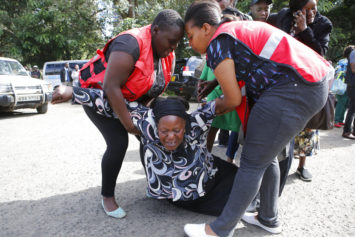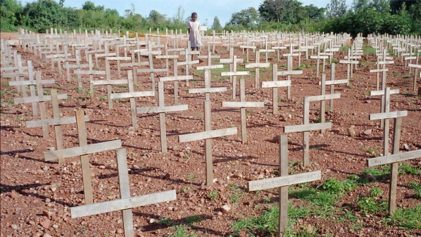As France is hit with the logistical nightmares of carrying out a military operation in a country as remote as Mali, tensions have developed between France and the United States because France expected much more assistance from the U.S. in its Mali mission, according to a story in the Wall Street Journal.
While Secretary of State Hillary Clinton and the rest of the Western world says the French action in Mali was necessary to stop the growth of al Qaida-connected terrorist cells, there is a limit to how much support these countries are willing to provide the operation. The U.S. is war-weary after more than a decade in Iraq and Afghanistan and isn’t clear that Mali poses a direct threat to American interests—and besides, President Obama just pledged in his inaugural address that “enduring security and lasting peace do not require perpetual war.” The rest of the European continent is cash poor and in the process of cutting its military budgets.
But the French claim that they got the impression from U.S. officials over the last few months that the U.S. would provide much more support.
“French officials involved in planning the Mali campaign say they had expected quick, robust U.S. military support based on comments by Pentagon officials in a series of private meetings, including one last October in Paris about how to tame violence in North and West Africa,” the Wall Street Journal reports. “According to French officials in attendance, the message that day from Michael Sheehan, the Pentagon’s point man for special operations, seemed clear: Stop the group known as AQIM—al Qaeda in the Islamic Maghreb—and its allies from creating a desert safe haven.”
NATO officials say that Defense Secretary Leon Panetta delivered a message to France and other allies at a NATO summit last fall that the Pentagon would do “whatever it takes” to help with an intervention in Mali against AQIM.
But the U.S. officials dispute that account, telling the Journal that something must have gotten “lost in translation” because they never promised direct military support.
Secretary of State Clinton told the Congressional hearing yesterday, “We are in for a struggle, but it is a necessary struggle. We cannot permit northern Mali to become a safe haven. We’ve got to have a better strategy.”
The White House strategy is to speed the transition from a French campaign to one led by African forces “so that it’s sustainable over the long term,” according to National Security Council spokesman Tommy Vietor.
A senior U.S. official told the Journal that Washington was giving France the “tough love” approach, letting France and the other European allies know that the U.S. won’t automatically foot the bill as global policeman when European powers are cutting defense investments — particularly when French launches a unilateral mission without consulting with Washington.
“We weren’t consulted. We were informed when they went in. This isn’t a combined operation,” the senior U.S. defense official said.
But French officials disagree, saying they consulted their American counterparts. A senior French official said that after the White House balked at Paris’s request for air tankers to refuel French fighters over Mali, the French response was, “We are doing the job without you.”
Among the African troops being deployed are 1,200 from Nigeria, which is considered generous since Nigeria is in the midst of fighting its own terror group, Boko Haram. A total of 1,600 troops from Benin, Nigeria, Senegal, Togo and Niger are already in Mali, with more on their way, including 500 from the Ivory Coast and some from Ghana and Guinea.
“The logistical bottlenecks are mounting as African armies prepare to deploy up to 5,000 troops under a United Nations mandate to reinforce the French,” the Journal reports. “Last week, the tiny country of Togo dispatched 145 troops. It took two days and four separate flights for the troops to arrive, because they needed to borrow the president’s jet, which seats only 45.”


